When you’re fighting late stage or drug-resistant cancer, it is important to look at all available options to support your current cancer treatment. But it can be difficult to sort through the information available on vitamins and supplements and if they can fight cancer from a natural approach. It is also important to know what vitamins and supplements to avoid.
It’s not always easy to decide what supplements would be “good or bad” for you, because each type of cancer is unique. So, a supplement to avoid at all costs in one type of cancer may help prevent the spread of a different type of cancer. It is essential to be aware that what is good for one person, may not be good for another. Depending on your particular situation, different vitamins and supplements may or may not be helpful in your fight against cancer.
What does “hormone-sensitive cancer” mean?
Certain types of cancers are considered to be hormone-sensitive. These cancers appear to rely on hormones in the body such as estrogen, progesterone, and testosterone to fuel their growth and spread. Cancers that can be hormone-sensitive include [1],[2],[3],[4],[5],[6]:
- Prostate
- Ovarian
- Breast
- Endometrial (uterine)
While these types of cancer may be hormone-sensitive, not all prostate, ovarian, breast, and endometrial cancer are affected by hormones. For example, if you have breast cancer your oncologist will do a biopsy to diagnose what type you have. Up to two-thirds of breast cancer patients will have ER+ or PR+ disease [7]. This means their tumors have estrogen receptors (ER) and/or progesterone receptors (PR). When estrogen and progesterone bind to these receptors, they can fuel the cancer to grow and spread at an accelerated rate.
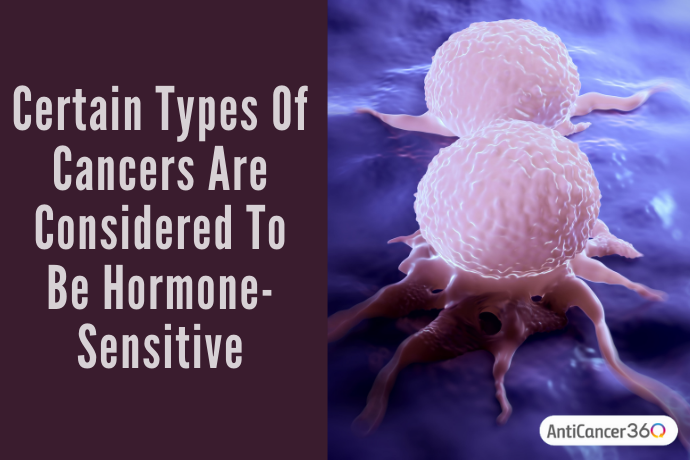
Certain herbal supplements may change the levels of hormones in your body. This may interfere with cancer treatment regimens and promote tumor growth. How do they do this you may ask? There are a variety of ways natural supplements can affect the hormones estrogen, progesterone, and testosterone in your body.
How do natural supplements affect hormones?
Supplements of concern, if you have hormone-sensitive cancer, can affect the level of hormones circulating in your body. These supplements may be estrogenic, progestogenic, androgenic, or antiestrogenic. When dealing with late-stage or drug-resistant cancer, it is important to know how each supplement will affect your body and your specific type of cancer. Depending on your individual situation, you should avoid certain natural supplements that may have a negative effect on your treatment outcomes.
Estrogenic (“estrogen-boosting” or “estrogen-like”) herbs affect the amount of estrogen circulating in your body or mimic estrogen in your body. These supplements include ER-binding herbs such as phytoestrogens [8], isoflavones [9], and estrogen constituents [10]. ER-binding herbs contain substances that occur naturally in plants and are similar in structure to estrogen. These substances can bind to estrogen receptors, mimic the effects of estrogen, and potentially lead to increased growth of hormone-sensitive cancer cells.
Progestogenic (“progesterone-boosting or “estrogen-like”) herbs increase the level of or mimic progesterone. These herbs and spices have a hormone-like action and can bind to progesterone receptors (PR) in your body. Hormone-sensitive cancers affected by progesterone levels may be impacted by PR-binding supplements. Both ER-binding and PR-binding herbs can have an impact on treatment and outcomes in breast cancer patients [11].
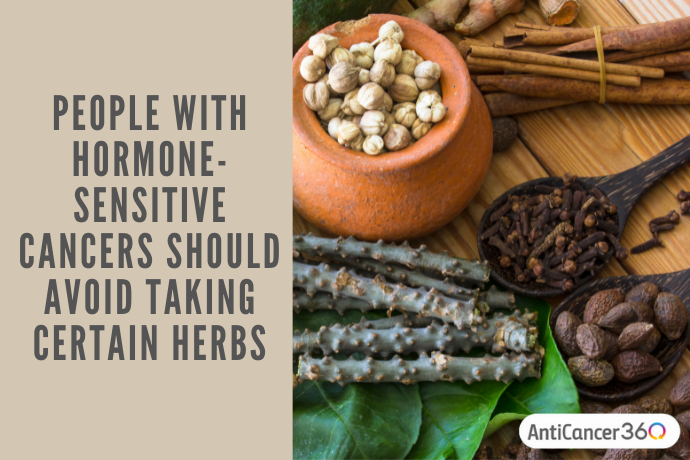
Androgenic (“testosterone-boosting” or “testosterone-like”) herbs increase the level of testosterone in the body. Testosterone is required for normal function of the prostate but can also fuel prostate cancer cell growth. So, herbs that increase testosterone levels can work against prostate cancer treatment and increase cancer cell growth [12].
Not all supplements that affect hormone activity increase hormone levels or have a similar action on hormone receptors. Some supplements are antiestrogenic (“estrogen-reducing”). They are natural aromatase inhibitors that stop the production of estrogen in the body. Prescription aromatase inhibitors such as anastrozole (Arimidex), letrozole (Femara), and exemestane (Aromasin) stop the body from converting testosterone to estrogen and are commonly prescribed to breast cancer patients. Natural supplements that also have the same effect could lead to side effects and drug interactions that may interfere with your current chemotherapy regimen.
It is important to use caution when adding any supplement to your daily medication regimen. When you are faced with late-stage, treatment resistant cancer, it is important to attack your cancer from all angles. The safest way to do this is with the help of a medical professional. A medical professional can review your medical history and current medication for interactions with your current chemotherapy treatment and make recommendations on which supplements are safe to use if your cancer is hormone-sensitive.
Supplements To Use with Caution
If you have hormone-sensitive cancer, consult an integrative health professional or physician before taking the following supplements.
Estrogenic Supplements (“estrogen-boosting” or “estrogen-like” herbs):
- Alfalfa (Medicago sativa) [27]
- Dong quai (Angelica sinensis) [21],[22]
- Evening primrose
- Fenugreek
- Flaxseed (not flaxseed oil) [25],[26]
- Gineabissua
- Hops (Humulus lupulus) [18],[19]
- Horny goat weed
- Kudzu
- Licorice (Glycyrrhiza glabra) [14],[15]
- Maca (Lepidium meyenii)
- Milk thistle (Silybum marianum) [23],[24]
- Red clover (Trifolium pratense)
- Soy isoflavones [13]
- Thyme (Thymus vulgaris) [16]
- Turmeric/curcumin [17]
- Vervain (Verbena officinalis) [20]
Progestogenic Supplements (“progesterone-boosting” or “progesterone-like” herbs)
- Damiana (Turnera diffusa) [28]
- Oregano (Origanum vulgare)
- Red clover (Trifolium pratense)
- Thyme (Thymus vulgaris)
- Turmeric/curcumin
- Vervain (Verbena officinalis)
Androgenic Supplements (“testosterone-boosting” herbs) [29]:
- Ashwagandha (Withania somnifera)
- Fenugreek
- Ginseng
- Panax ginseng (Asian)
- Ginseng (American, Siberian, Asian)
Antiestrogenic Supplements:– natural aromatase inhibitors(“estrogen-reducing” herbs):
- Black cohosh (Cimicifuga racemosa) [31],[32]
- Chasteberry (Vitex agnus-castus) [33]
- DHEA (Dehydroepiandrosterone)
- Licorice (Glycyrrhiza glabra)
- Red clover (Trifolium pratense)
- Resveratrol (trans-3,4′,5-trihydroxystilbene)
- Saw palmetto (Serenoa repens)
- Soy isoflavones [30]
Next, we’ll take a closer look at why some of these herbs may be problematic when you’re fighting certain cancers.
Ashwagandha (Withania somnifera)
Ashwagandha is an evergreen shrub found in India that is commonly used in Indian natural medicine. It is used for a variety of physical and mental health conditions. Studies have found both the root and leaf part of this shrub to have antitumor activities in cancer cell lines including breast carcinomas, lung carcinomas, and fibrosarcomas [34]. While this herb has displayed anticancer activity, it is not recommended for everyone.
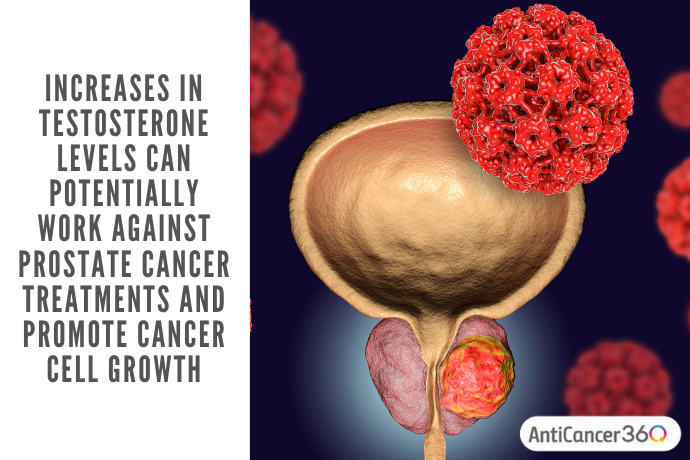
People with hormone-sensitive cancer should be cautious about the use of Ashwagandha. Ashwagandha has been shown to increase levels of DHEA and testosterone in males taking this supplement to promote muscle strength and endurance [35]. Increases in testosterone levels can potentially work against prostate cancer treatments and promote cancer cell growth.
Resveratrol(trans-3,4′,5-trihydroxystilbene)
Resveratrol naturally occurs in many plants including peanuts, grapes, pines, and berries. It has been used in both Chinese and Japanese traditional medicine for a variety of conditions including cancer. Studies have shown resveratrol to have antitumor activities in breast cancer cells, liver cancer cells, gastric cancer cells, and lung cancer cells [36]. There are a variety of ways Resveratrol affects cells in the body.
Resveratrol’s effect on estrogen receptors can be of concern in some hormonal cancers. Since resveratrol has a similar structure to the hormone estrogen, it can interact with estrogen receptors and mimic estrogen [37]. Because of its effects on these receptors, resveratrol should be used with caution in people with hormone-sensitive cancers. While it may be beneficial for some, it may interfere with cancer treatments or have a negative effect on treatment outcomes in others.
Red clover (Trifolium pratense)
Red clover is an herb found in areas of Europe and Asia. It contains high levels of isoflavones, similar to soy. Isoflavones are known to have similar effects to estrogen in the human body. Red clover has become one of the major sources of isoflavones found in products marketed to reduce hot flashes, night sweats, and other menopausal symptoms in postmenopausal women [38]. It has also been shown to be effective in increasing cell death in prostate cancer cells [39]. This may be due to its estrogenic activity.
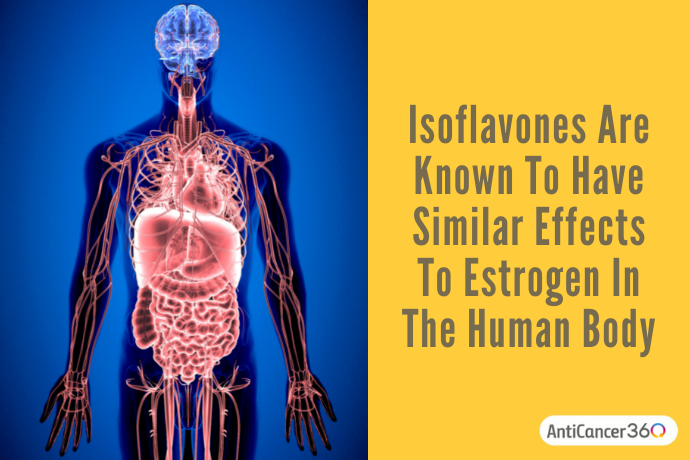
The estrogenic activity of red clover may make it harmful to patients with other types of hormonal cancer. Patients with breast cancer taking red clover need to be cautious about circulating estrogen levels and potential interactions with cancer treatments such as tamoxifen (Soltamox) and other aromatase inhibitors. Studies have had conflicting results on the effects of isoflavones like red clover on hormonal cancers [40].
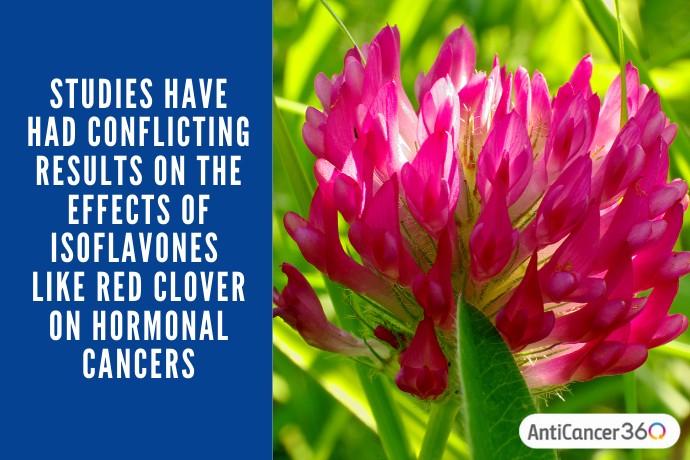
Panax ginseng (Asian ginseng)
Panax ginseng is an herb commonly used in oriental countries for several conditions including menopausal symptoms, sleep disorders, depression, and anxiety. It has been found to reverse chemoresistance and enhance cancer cell death when used along with chemotherapy treatments in some patients [41]. Panax ginseng is used in combination with chemotherapy in various cancers such as lung, stomach, and colorectal cancer.
People with hormonal cancers may not benefit from the use of Panax Ginseng. It has been found to stimulate estrogen production and increase the number of estrogen receptors in some organs [42]. This increase in estrogen and estrogen receptors can promote cancer growth and decrease the effectiveness of cancer treatments in hormonal cancers that are sensitive to estrogen.
DHEA (Dehydroepiandrosterone)
DHEA is a supplement that is typically derived from wild yam or soy. It is a steroid hormone that has been found to be effective in diseases such as diabetes, immune disorders, and certain cancers. It can stop cancer cell development and spread in certain patients with liver, colon, lung, and skin cancers. Studies have shown that DHEA may also stop the spread of cervical cancer cells [43],[44].
In other cancers, such as breast cancer, DHEA has been associated with an increased risk of ER+ and PR+ tumors [45]. Some studies have shown an increase in the incidence of prostate, breast, colon, lung, and stomach cancer [46]. Other studies have shown conflicting results. In these studies, DHEA was shown to decrease the spread of breast cancer cells [47]. This supplement should be used with caution in certain people to ensure it will benefit their particular situation.
Oregano (Origanum vulgare)
Oregano is an herb belonging to the mint family and is native to the Mediterranean region. It has been shown to be beneficial for heart health, cancer prevention, and lung conditions [48]. Studies have shown oregano may be effective against skin cancer, liver cancer, and colon cancer. Oregano can both stop cancer cell spread and cause cancer cell death [49].
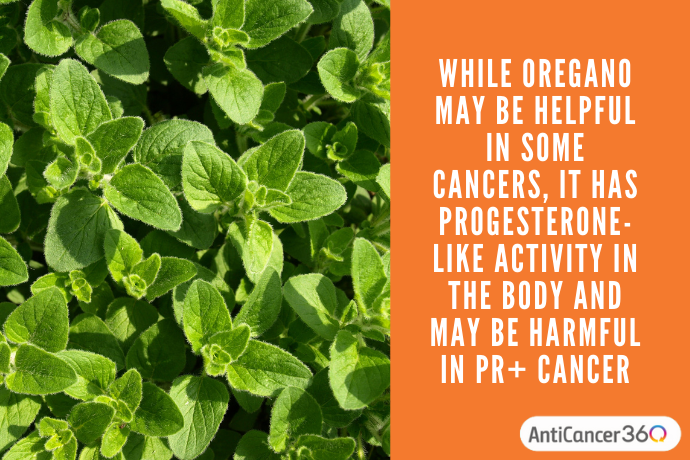
While Oregano may be helpful in some cancers, it has progesterone-like activity in the body and may be harmful in PR+ cancer. There is also some evidence of estrogen-like activity from oregano [50]. People with hormonal cancers that may be affected by estrogen and progesterone activity should use caution when adding oregano supplements to their cancer regimen.
Can Herbs Help Rid the Body of Cancer
It can be overwhelming to filter through all the information about vitamins and supplements and how they affect cancer. What works to kill one type of cancer cell may promote growth in a different type of cancer. When you are dealing with late stage or drug-resistant cancer, it is important to attack cancer from all angles.
Careful evaluation of your individual situation by an integrative healthcare professional can support your chances of survival by determining which supplements will work best for you. Natural supplements can be integrated into your treatment plan to fight cancer based on available evidence in a way that won’t interfere with your current oncology treatment.
Ultimately, when using an “Aggressive Integrative Approach” to cancer, the goal is to fight cancer from every possible direction. Depending on your unique situation, why not fight cancer from every possible angle, especially with difficult or advanced cancers?
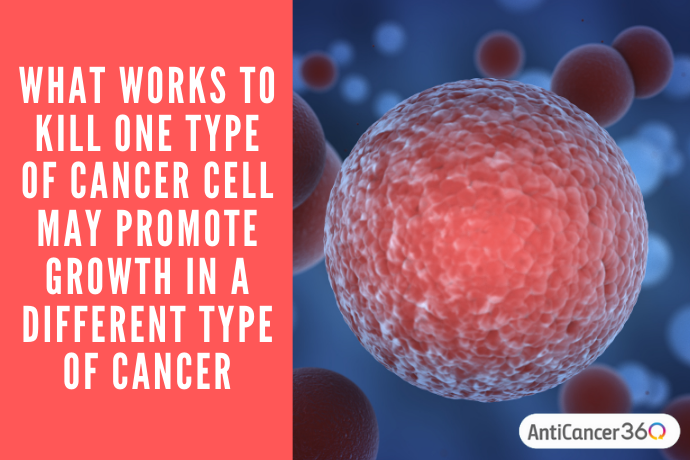
Do you have hormonal cancer? Have you thought about taking supplements to fight your cancer? Are you currently taking any natural or dietary supplements?
Our team can help you determine which supplements are right for you —and which ones to avoid. In some cases, the anticancer effects of a particular herb may outweigh its hormone-like effects. This is best determined on a case-by-case basis, according to your unique situation and your approach to treatment.
If you’d like to learn more about the AntiCancer360 approach and see if we can help you… please watch our free online webinar to learn more about our approach. Then at the end, you’ll be able to schedule a free call with someone from our team so that we can discuss your case in more detail.
Dr. Elizabeth Cambria is a 2004 graduate of the University of Pittsburgh School of Pharmacy. She has more than 20 years of clinical experience in community pharmacy and patient consultation. She is one of AntiCancer360’s consultant pharmacists and medical writers.
Elizabeth is passionate about patient education and believes knowledge is power in the pursuit of a healthier life. As both an ovarian cancer survivor and experienced pharmacist, she is dedicated to sharing her expert knowledge to educate patients and provide them with up-to-date advice. She believes in an integrative approach to preventative care and health management.
Elizabeth’s hobbies and interests include reading suspense novels, baking, and traveling. She hopes to one day accomplish her goal of visiting each and every state in the US. Elizabeth currently resides in Pennsylvania with her family, and their 3 rescued barn cats.

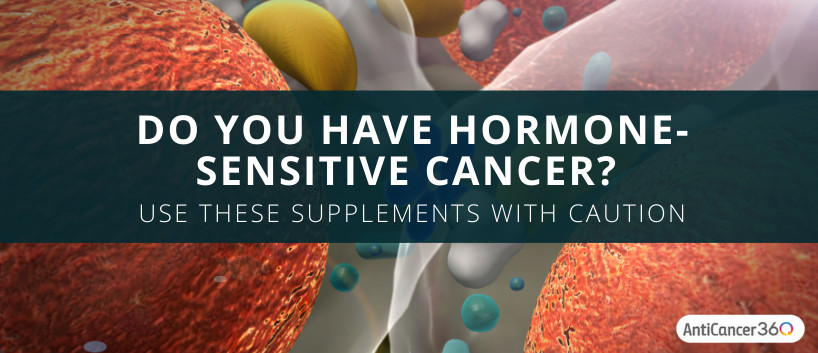



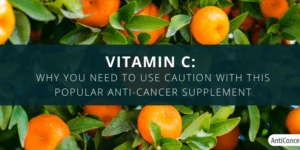

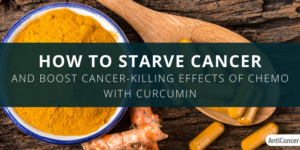
I guess I don’t get it… if you have ER+ positive breast cancer and you look at the list of herbs to use with caution… Milk Thistle, Curcumin, and flaxseed… all the supportive evidence states they are excellent cancer fighters… So your own evidence contradicts your article.
Hi Darlene!
So, this topic is actually really complex.
Basically, there are different types of estrogen receptors, and depending on which type are stimulated, it can be good or bad against hormone positive cancers.
Then there are some substances that have shown benefit in some studies, and potential detriment in others for hormone sensitive cancers.
And we’re actually going to have our cell biologist review this article, and add in some important details to add some more clarity to this article.
Please stay tuned 🙂
Dr. Gene
Hi, I have an endometrial cancer stage 3. It’s a serous type. My oncologist says I should avoid anything hormone-like. I did some research and my type of cancer(serous) is not hormone sensitive so I’m a bit confused…I had treatments and I was fine for almost 3 years and cancer is back in my lymph nodes and lungs…I’m taking milk thistle, curcuma and flaxseeds, should I stop?
Hi Marlene! So if it’s confirmed that your cancer is not hormone sensitive, then you shouldn’t have any issues with any of the supplements and foods that you mentioned.
And, even if your case was hormone positive, it depends on each substance, whether or not you should stop it since there are many nuances to the way these substances interact with hormone receptors. We will be writing another more in-depth article about this soon. Stay tuned!